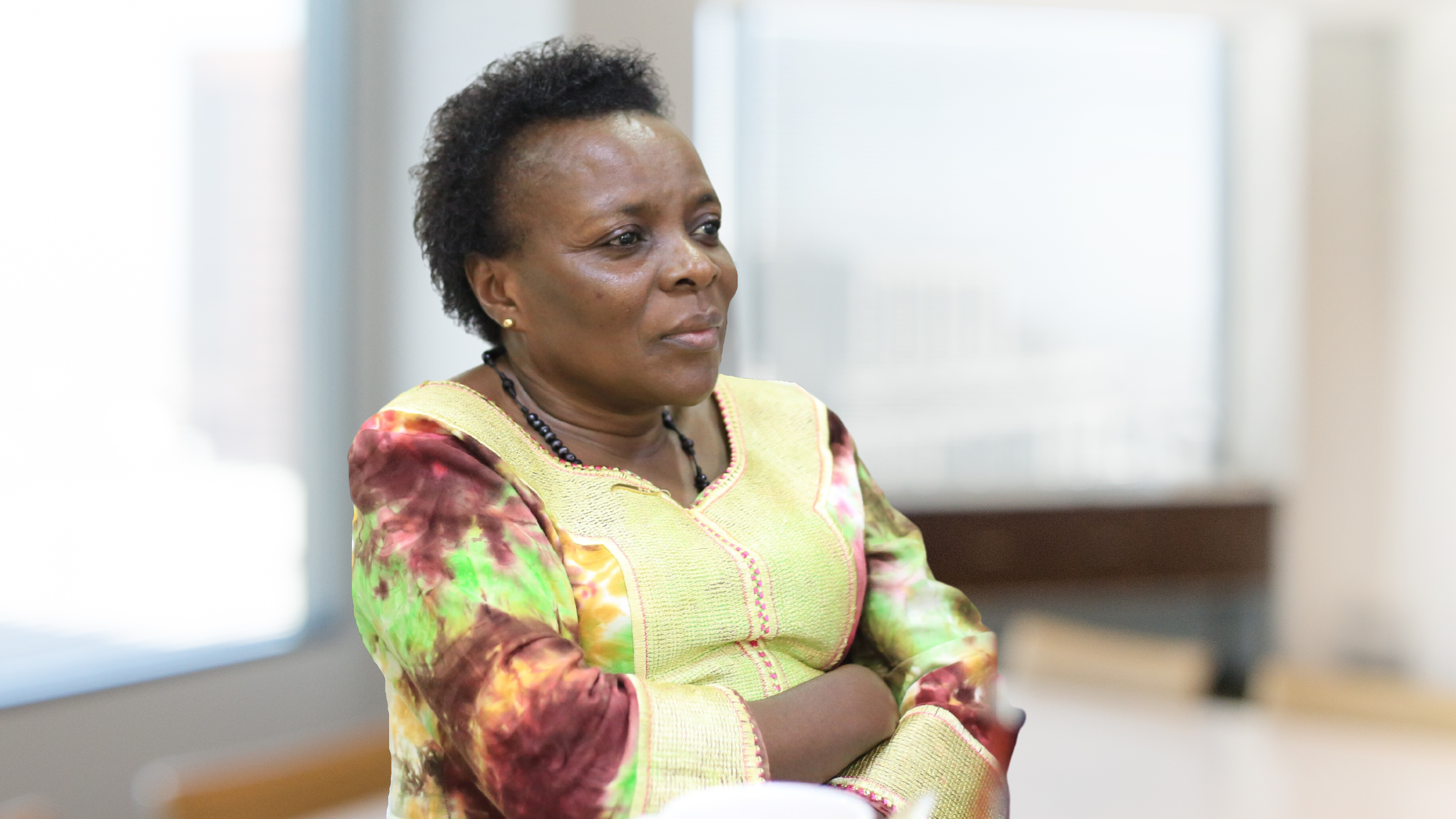In the words of Maxensia Takirambule: "I have been living with HIV for the last 24 years. Life doesn’t end at testing positive. One can be of great value to the world"
Date:

Maxensia Takirambule tested positive to HIV 24 years ago. Since the diagnosis, she faced social stigma, unemployment and disability. Today she is a champion and advocate for HIV awareness and prevention through her organisation Lungujja Community Health Caring (LUCOHECO), which is leading the effort to support women and girls living with or at risk of HIV in Lubaga Division, in Kampala, Uganda.
![]() I was diagnosed with HIV in 1998 after suffering sexual assault and violence at the hands of my husband. From the day I tested positive and for a period of five years, I was afraid to initiate antiretroviral treatment because of the social stigma and gender related stereotyping. I only started my antiretroviral therapy after going through a life-threatening situation. My own self-stigma affected my access to treatment and health services. 18 years later and while on treatment, I suffered from severe calcium deficiency which led to osteoporosis as a result of the treatment regimen I was taking, and I was confined to a wheelchair.
I was diagnosed with HIV in 1998 after suffering sexual assault and violence at the hands of my husband. From the day I tested positive and for a period of five years, I was afraid to initiate antiretroviral treatment because of the social stigma and gender related stereotyping. I only started my antiretroviral therapy after going through a life-threatening situation. My own self-stigma affected my access to treatment and health services. 18 years later and while on treatment, I suffered from severe calcium deficiency which led to osteoporosis as a result of the treatment regimen I was taking, and I was confined to a wheelchair.
I also suffered from institutional and social stigma. Once my employers discovered my HIV status, I was fired. All of this preceded the death of my husband one year after my diagnosis. Following his death, I was accused of bringing HIV into the family and I suffered several attempts of being stripped of my marital property by my in-laws.
My personal experience on the effects of HIV led me to start the Lungujja Community Health Caring Organization (LUCOHECO) in 2005 in Uganda where we provide community support and primary health care services to vulnerable women and girls affected by HIV. At LUCOHECO, we focus on both behavioral change and preventive strategies to effectively combat HIV in the community. We also advocate for the provision of preventive health care and life prolonging medication and treatment. We support women led and women-oriented projects, and community health projects for women, children and adolescents with HIV.
Through my organization in Uganda, I have become a trusted community voice and someone willing to continue offering care and support free from stigma and discrimination. My motivation is to fight for women and girls who faced similar challenges to mine and to achieve meaningful change in the society ensuring that women and girls can fulfill their deepest aspirations despite being HIV positive.
I want to tell the women and girls in Uganda not to let their HIV status define them. When I became HIV positive and disabled, I did not let my status and disability get into the way of making a positive change in the world. I want raise awareness about the effects of HIV and to remind people that life does not end at testing positive. One can continue to be of great value to the nation and the world even when living a positive life as long as they accept their status and offer themselves to promote positive prevention.